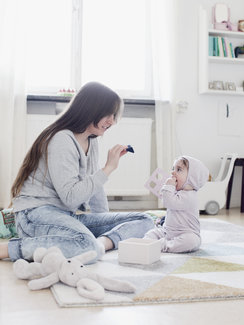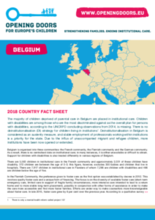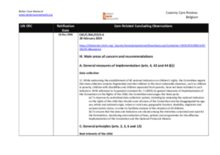

Displaying 91 - 100 of 237
The article examines from a comparative perspective how Sweden and Germany reacted to the unprecedented increase in unaccompanied asylum-seeking children (UASC) in 2015. By illustrating the reactions of two countries, the study shows that an unprecedented wave of refugees/asylum seekers can trigger both more incremental, adaptive and drastic transformative policy changes.
Despite the importance of training residential youth care professionals to increase their professional competences, little attention has been paid so far to the influence of training on the behaviour and skills of residential professionals. This study aims to gain greater insight into the effects of training on the skills of these professionals.
This study investigates the nature of newly formed relationships between children and their foster carers.
This book largely focuses on unaccompanied minors who arrived in a European country in 2015, with special attention paid to the top-three nationalities of unaccompanied minors, namely Syrian, Afghan and Eritrean minors.
This open access research paper examines the influence of children, birth parents and foster carers on the matching decision from a practitioner's perspective.
The increasing importance of higher levels of formal education and training leads to an extended transition phase to adulthood in Austria. This article explores how care leavers are confronted with new disadvantages and with a lack of political and societal attention.
This factsheet highlights the developments and challenges still ahead in Belgium and offers key recommendations to the EU and the national government to ensure that children are cared for in family-based settings.
This factsheet highlights the developments and challenges still ahead in Austria and offers key recommendations to the EU and the national government to ensure that children are cared for in family-based settings.
The present study addressed institutionalised children and staff members' perspectives about bullying in Residential Care settings (RCs) in five European countries (Bulgaria, France, Greece, Italy and Romania.).
This country care review includes the care-related Concluding Observations adopted by the Committee on the Rights of Persons with Disabilities and the Committee on the Rights of the Child as part of the Committees' examinations of the initial State reports.



